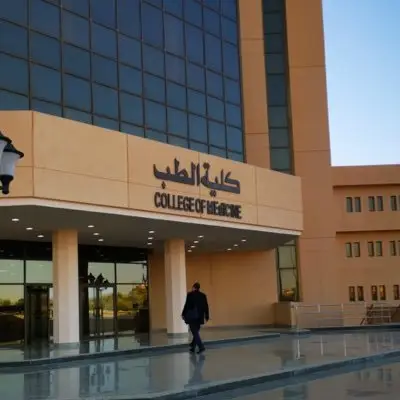- President
- About
- Departments
- Radiology and Medical Imaging Department
- Ear, Nose and Throat Department
- Department of Internal Medicine
- Anatomy and Histology
- Medical Education Department
- Surgical department
- Dermatology
- Department of Psychiatry
- Orthopedic Surgery Department
- Obstetrics and Gynecology
- Department of Family and Community Medicine
- Department of Pediatrics
- Department of Emergency Medicine, Care and Anesthesiology
- Ophthalmic department
- Department of Biology and Immunology
- Department of Pathology
- Physiology
- Programs
- Faculty members
- Regulations and Bylaws
- Timeline
- Contact us
Physiology

Head of Department:
Dr.. Dr. Mansour bin Saleh Al-Sharida
Office :
Main Building - B2 Building
Phone number :
01610351
e-mail:
mdc.phd@qu.edu.sa
Vision
The department aims to be a leader in medical education and sustainability and a supporter of community health promotion and national and global partnership
Mission
Providing a distinguished, advanced and sustainable academic environment that contributes to enhancing the health level of the community by graduating medical competencies, providing consultations and conducting research studies that are scientifically and professionally influential and support innovation and effective partnerships.
Overview
The Department of Physiology plays a vital role in the foundation of medical education, as physiology is fundamental to the understanding of clinical medicine. Our department is committed to providing high-quality education in human physiology, a fundamental discipline that forms the basis of the mechanisms of health and disease
Objectives :
- Providing students with basic scientific knowledge in the field of specialization.
- Developing practical and applied skills related to the profession or academic field.
- Promote critical and creative thinking among students.
- Preparing students for the labor market by developing professional and technical skills.
- Instilling professional values and ethics related to the field.
- Encouraging scientific research and participating in research projects.
- Serving the community by providing scientific solutions and community initiatives.
